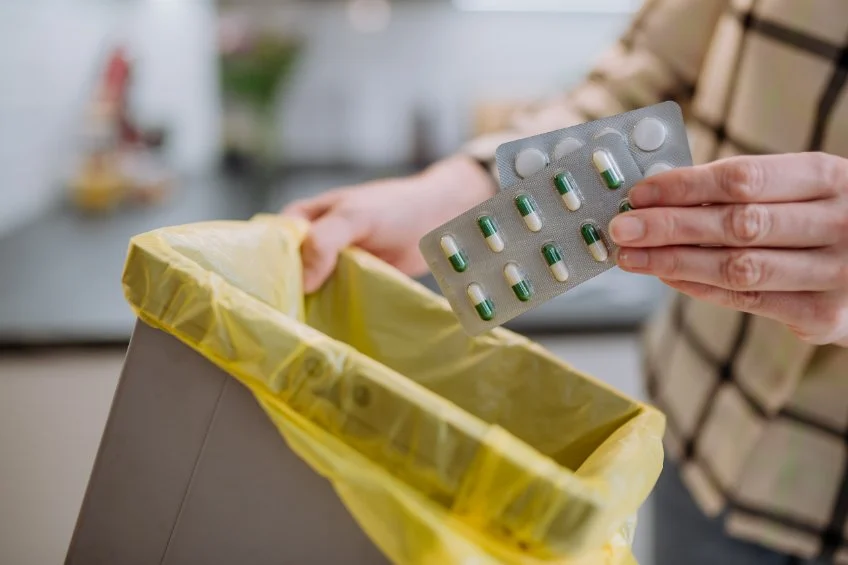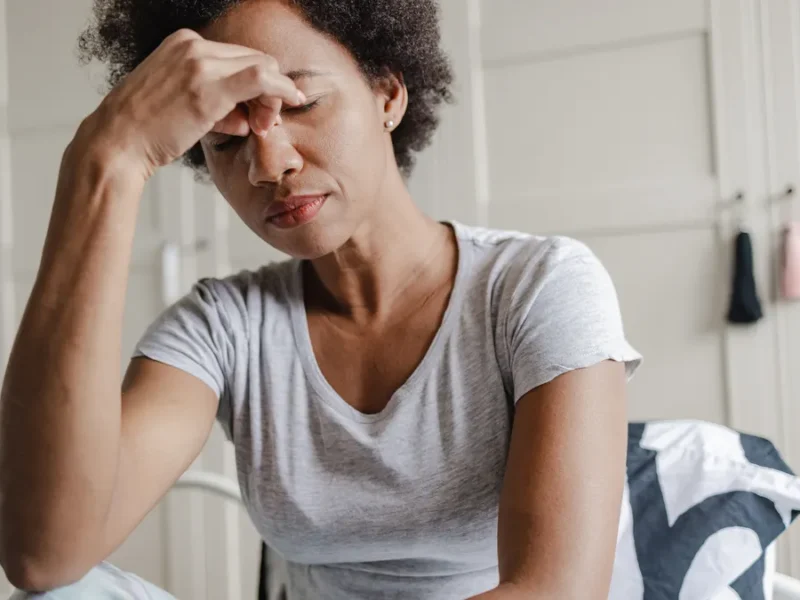It is necessary to address the misuse of medications, accidental ingestion, and prevention of environmental contamination. Expired and unused medications should not be thrown away because environmental contamination and other risk factors are influenced by this process. These types of medicines should be returned to the pharmacy. There are general guidelines for the safe handling and disposal of medications at home.
Medication Disposal Programs:
Take-Back Programs: Many communities organize medication take-back events where individuals can drop off unused or expired medications. These events are often coordinated by law enforcement agencies, pharmacies, or community organizations.
Pharmacy Disposal: Some pharmacies have medication disposal kiosks or mail-back programs. You can inquire at your local pharmacy about available options. Certain pharmacies may also accept controlled substances for disposal.
Government Collection Sites: Some government agencies provide permanent medication disposal sites where you can drop off medications. Check with your local health department or environmental agency for information on available collection sites.
Controlled Substances: DEA Guidelines: For the disposal of controlled drugs, guidelines are provided by the U.S. Drug Enforcement Administration (DEA). Contact your local DEA office or visit their website for information on authorized collection sites.
Safe Handling Guidelines at Home:
- Read the Label: The label of the medication contains information on the disposal of the medication or checking the leaflet.
- Do Not Flush Medications: Do not flush medications down the toilet.
- Remove Personal Information: Before disposal, remove any personal information from prescription bottles to protect your privacy.
- Mix with Unappealing Substance: To avoid accidental ingestion of medications, mix them with an unappealing substance (e.g., coffee grounds)
- Dispose in Household Trash: If no take-back options are available, dispose of medications in household trash. Place medications in a sealed container or bag to prevent leakage.
- Controlled Substances: If you have controlled substances, such as certain pain medications, contact your local law enforcement agency for guidance on proper disposal.
- Do Not Share Medications: Avoid sharing prescription medications with others.
- Sharps Disposal: If you have used needles or other sharps, follow proper guidelines for their disposal. Some pharmacies and community health organizations provide sharps disposal containers.
Environmental Considerations:
- Environmental Impact: Improper disposal can contribute to the contamination of water sources and soil. Follow guidelines to minimize environmental impact.
- Check Local Regulations: Be aware of any specific local regulations regarding medication disposal.
Unused Medications:
- Minimize Excess Prescriptions: Work with your healthcare provider to minimize excess prescriptions and only request the amount of medication needed for your treatment.
- Donation Programs: Some charitable organizations and pharmacies accept donations of unused, unexpired medications for redistribution to individuals in need. Check local regulations and guidelines.
Storage and Security:
- Secure Medications: Store medications in a secure and locked cabinet, especially if there are children or pets in the household, to prevent accidental ingestion.
- Keep Original Packaging: Keep medications in their original packaging with labels intact to ensure proper identification.
- Temperature Considerations: Follow storage instructions on the medication label. Some medications may require refrigeration, while others should be stored at room temperature.
Disposal of Expired Medications:
- Regularly Check Expiration Dates: Periodically check the expiration dates of medications in your home and dispose of any that have expired.
- Return to Pharmacy: Some pharmacies may accept expired medications for proper disposal. Inquire with your local pharmacy about their policy.
Continuous Education:
- Healthcare Provider Guidance: Consult with your healthcare provider or pharmacist if you have any questions about the safe handling or disposal of specific medications.
- Educational Campaigns: Participate in or support educational campaigns within your community that promote safe medication disposal and raise awareness about the potential risks of improper disposal.
Unused Medication Donation Programs:
- Some charitable organizations, both local and national, accept unused medications for redistribution to individuals who may have difficulty affording them. Check with pharmacies or healthcare providers for information on participating in such programs.
Disposal of Liquid Medications:
- Mixing with Inedible Substances: When disposing of liquid medications, mix them with an inedible substance (like cat litter or dirt) in a sealable plastic bag before placing them in the trash.
- Check with Pharmacies: Some pharmacies may accept liquid medications for disposal. Check with your local pharmacy for their policy on liquid medication disposal.
Digital Pill Disposal Technologies:
- Digital Pill Technologies: Some emerging technologies involve the use of digital pills with embedded sensors. Dispose of these medications according to the specific guidelines provided by the manufacturer or healthcare provider.
Follow-up with Healthcare Providers:
- Medication Review: Periodically review your medications with your healthcare provider. This can help identify any medications that are no longer needed and should be safely disposed of.
Stay informed about the latest guidelines and disposal options in your area to ensure that you are following the most up-to-date practices.


